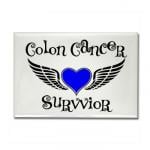Doctors Warn: Avoid Genetically Modified Food

http://www.seedsofdeception.com/utility/showArticle/?objectID=2992
Comments
-
Mono5
I apologize for the hijacking of your thread! I agree that we need to just eat regular, unadulterated, REAL food. It's bad enough that we have all that processed junk food and veggies sprayed with poison. Now we have gentically altered, food mutations to worry about. Much of it is unlabeled so you are eating it and don't even know. I say this is a great article for the home gardener!
Munch on,
Kimby0 -
You can tell in the produce dept.kimby said:Mono5
I apologize for the hijacking of your thread! I agree that we need to just eat regular, unadulterated, REAL food. It's bad enough that we have all that processed junk food and veggies sprayed with poison. Now we have gentically altered, food mutations to worry about. Much of it is unlabeled so you are eating it and don't even know. I say this is a great article for the home gardener!
Munch on,
Kimby
In our US grocery stores, all produce has a PLU (product look up) code (it's what the cashier uses to ring up the veggie if the scanner doesn't work). Conventinally grown (with fertilizers and insecticides) have a 4 digit code. Organic has a 5 digit code starting with a 9 and genetically modified (GM) a 5 digit code starting with an 8.
Any foods labeled organic CAN NOT contain any GM foods. Health food stores and supermarkets (Whole Foods, Wild Oats, Earthfare to name a few) guarantee you that they do not sell any products made from GM products.
Foods at health food stores/supermarkets can be pricey but I learned the name of the brands of the "good stuff" and shop for them on sale at my local "regular" grocery stores.
One of my biggest concerns over high fructose corn syrup (sugar substitute that is 10 times sweeter and in EVERYTHING) is that the majority of it is made from genetically modified corn because it is the cheapest corn you can buy.
Lisa P.0 -
You beat me to itscouty said:You can tell in the produce dept.
In our US grocery stores, all produce has a PLU (product look up) code (it's what the cashier uses to ring up the veggie if the scanner doesn't work). Conventinally grown (with fertilizers and insecticides) have a 4 digit code. Organic has a 5 digit code starting with a 9 and genetically modified (GM) a 5 digit code starting with an 8.
Any foods labeled organic CAN NOT contain any GM foods. Health food stores and supermarkets (Whole Foods, Wild Oats, Earthfare to name a few) guarantee you that they do not sell any products made from GM products.
Foods at health food stores/supermarkets can be pricey but I learned the name of the brands of the "good stuff" and shop for them on sale at my local "regular" grocery stores.
One of my biggest concerns over high fructose corn syrup (sugar substitute that is 10 times sweeter and in EVERYTHING) is that the majority of it is made from genetically modified corn because it is the cheapest corn you can buy.
Lisa P.
Just was going to post about the produce codes but you beat me too it. I believe most people are not aware of the coding and it is good to get the word out. It is amazing what they add to foods- sugar,highfructose corn syrup,gluten etc. I have become quite the label reader!
Dawn0 -
I'm with you Dawn!!dmdwins said:You beat me to it
Just was going to post about the produce codes but you beat me too it. I believe most people are not aware of the coding and it is good to get the word out. It is amazing what they add to foods- sugar,highfructose corn syrup,gluten etc. I have become quite the label reader!
Dawn
There is no doubt in my mind that what we eat etc is why we have the highest obesity, cancer, type 2 diabetes, and heart disease rates of all other civilized countries!!!
Good for you and congrats on your great scan results. With you eating smarter I dare say it is a coincidence.
Lisa P.0 -
Definitetly notscouty said:I'm with you Dawn!!
There is no doubt in my mind that what we eat etc is why we have the highest obesity, cancer, type 2 diabetes, and heart disease rates of all other civilized countries!!!
Good for you and congrats on your great scan results. With you eating smarter I dare say it is a coincidence.
Lisa P.
Lisa
Definitetly not a coincidence! There is no doubt in my mind either that my major diet/supplement changes helped heal my body during chemo and after. I hope I have now created an environment in my body where cancer can no longer live !!
I am impressed with all the knowledge that you and 2bhealed have. I have even read many of your posts from the past to help educate myself. I have been saving for a juicer and plan to start juicing. I would love to hear what you currently do now that you are almost 5 years(I think) out if you wouldn't mind. PM would be great.I sure hope I can get to were you are.
I am very happy for you and your success(2bhealed also) has confirmed that I am on the right track. You are my role models!
Dawn0 -
What is genetically modified?dmdwins said:Definitetly not
Lisa
Definitetly not a coincidence! There is no doubt in my mind either that my major diet/supplement changes helped heal my body during chemo and after. I hope I have now created an environment in my body where cancer can no longer live !!
I am impressed with all the knowledge that you and 2bhealed have. I have even read many of your posts from the past to help educate myself. I have been saving for a juicer and plan to start juicing. I would love to hear what you currently do now that you are almost 5 years(I think) out if you wouldn't mind. PM would be great.I sure hope I can get to were you are.
I am very happy for you and your success(2bhealed also) has confirmed that I am on the right track. You are my role models!
Dawn
I'm fairly sure everything we consume has been genetically altered to some degree. We've cross pollinated and interbred plants for thousands of years. There are very few ancestral plants left. I grew some ancestral tomatoes this season, but they only go back 300 years. As far as meat goes, I've stopped eating most beaf, although I am having a ribeye from my neighbors cow tonight. I eat a lot of eggs, I try to get them at the flea market every sat but I bought the stuff to build a chicken coupe, I just haven't done it yet. I eat wild caught fish. I would love to eat local fish but pretty much everything is contaminated around here. Good eating0 -
Asparagus to cure Cancer
Someone posted on cancer.org in the thread, Nutrition - Living Smart, asparagus as a cure for cancer... anyone heard good things about asparagus and the benefits for cancer? I searched and found this article on the subject:
Nobodys pedaling a product here in the article...
http://www.democraticunderground.com/discuss/duboard.php?az=view_all&address=222x53152
No GMO Guide: http://www.seedsofdeception.com/DocumentFiles/141.pdf0 -
Does anyone think....nudgie said:Good site
A good site to look a foods is www.cancerproject.org
... that canned or frozen vegetables are just as good as fresh? for some reason, I like the taste of the canned asparagus instead of the asparagus, isn't that weird? but wondered if it wasn't as good as the fresh.
Hugsss!
~Donna0 -
canned and frozenShayenne said:Does anyone think....
... that canned or frozen vegetables are just as good as fresh? for some reason, I like the taste of the canned asparagus instead of the asparagus, isn't that weird? but wondered if it wasn't as good as the fresh.
Hugsss!
~Donna
If you can't get fresh, fresh frozen is a good alternative. There is little difference between the two. Read the label though. Most should have only the one ingredient. Canned foods are another story. Canned ingredients have usually been cooked to some degree. So they have to add things to keep the food from spoiling, and loosing texture. Salts and nitrates are the most common. Some of these ingredients have been used for a very long time and I guess are safe but I try to avoid them. Sodium is required by our bodies in larger amounts than we would expect. Luckily, most everything else needs it too, so we get a bunch of it from our food. If you lead an active lifestyle or live in a hot, humid environment you will need more than the average person. I doubt sodium nitrate is the way to get it. Table salt and MSG are much better ways to consume sodium. I know MSG has a bad rep but only if consumed in large amounts. A little goes a long way. Look at it this way. When you consume table salt, your body uses the sodium in solution, the other ion in solution is chlorine. A chlorine ion by itself isn't that bad but when mixed with some of his friends becomes one of the most dangerous poisons on the planet. With MSG you have the sodium ion and a glutamate ion. When was the last time you heard of glutamate poisoning.0 -
Thanks John!snommintj said:canned and frozen
If you can't get fresh, fresh frozen is a good alternative. There is little difference between the two. Read the label though. Most should have only the one ingredient. Canned foods are another story. Canned ingredients have usually been cooked to some degree. So they have to add things to keep the food from spoiling, and loosing texture. Salts and nitrates are the most common. Some of these ingredients have been used for a very long time and I guess are safe but I try to avoid them. Sodium is required by our bodies in larger amounts than we would expect. Luckily, most everything else needs it too, so we get a bunch of it from our food. If you lead an active lifestyle or live in a hot, humid environment you will need more than the average person. I doubt sodium nitrate is the way to get it. Table salt and MSG are much better ways to consume sodium. I know MSG has a bad rep but only if consumed in large amounts. A little goes a long way. Look at it this way. When you consume table salt, your body uses the sodium in solution, the other ion in solution is chlorine. A chlorine ion by itself isn't that bad but when mixed with some of his friends becomes one of the most dangerous poisons on the planet. With MSG you have the sodium ion and a glutamate ion. When was the last time you heard of glutamate poisoning.
I never know what to look for in labels, I just grab and buy, which is dumb, but I will be looking for the fr4esh to steam up, I bought a new steamer, so I can steam my fresh vegetables now, that hubby is finally getting our garden all planted! I live in Ohio, so it gets pretty hot here in the summers, and nice and cold in the winters. I sure don't hear much about glutamate poisoning, that's for sure, everything sounds so confusing what they put in stuff in these days, you don't know the good stuff from the bad stuff anymore.
Hugsss to you!
~Donna0 -
Not sure I believe you don't know Johnsnommintj said:What is genetically modified?
I'm fairly sure everything we consume has been genetically altered to some degree. We've cross pollinated and interbred plants for thousands of years. There are very few ancestral plants left. I grew some ancestral tomatoes this season, but they only go back 300 years. As far as meat goes, I've stopped eating most beaf, although I am having a ribeye from my neighbors cow tonight. I eat a lot of eggs, I try to get them at the flea market every sat but I bought the stuff to build a chicken coupe, I just haven't done it yet. I eat wild caught fish. I would love to eat local fish but pretty much everything is contaminated around here. Good eating
But I'll bite since no one else has.
Per Wikipedia
Genetically modified (GM) foods are derived from organisms whose DNA has been modified through genetic engineering, unlike similar food organisms developed through the conventional genetic modification of selective breeding (plant breeding and animal breeding) or mutation breeding. GM foods were first put on the market in the early 1990s. Typically, genetically modified foods are plant products: soybean, corn, canola, and cotton seed oil, but animal products have been developed.
From an energy.gov website:
Although "biotechnology" and "genetic modification" commonly are used interchangeably, GM is a special set of technologies that alter the genetic makeup of organisms such as animals, plants, or bacteria. Biotechnology, a more general term, refers to using organisms or their components, such as enzymes, to make products that include wine, cheese, beer, and yogurt.
Combining genes from different organisms is known as recombinant DNA technology, and the resulting organism is said to be "genetically modified," "genetically engineered," or "transgenic." GM products (current or those in development) include medicines and vaccines, foods and food ingredients, feeds, and fibers.
When you said we have been altering genes for years, you are talking ab out biotechnology. Genetic modifications just started in the 90s.
Lisa P.0 -
You're rightscouty said:Not sure I believe you don't know John
But I'll bite since no one else has.
Per Wikipedia
Genetically modified (GM) foods are derived from organisms whose DNA has been modified through genetic engineering, unlike similar food organisms developed through the conventional genetic modification of selective breeding (plant breeding and animal breeding) or mutation breeding. GM foods were first put on the market in the early 1990s. Typically, genetically modified foods are plant products: soybean, corn, canola, and cotton seed oil, but animal products have been developed.
From an energy.gov website:
Although "biotechnology" and "genetic modification" commonly are used interchangeably, GM is a special set of technologies that alter the genetic makeup of organisms such as animals, plants, or bacteria. Biotechnology, a more general term, refers to using organisms or their components, such as enzymes, to make products that include wine, cheese, beer, and yogurt.
Combining genes from different organisms is known as recombinant DNA technology, and the resulting organism is said to be "genetically modified," "genetically engineered," or "transgenic." GM products (current or those in development) include medicines and vaccines, foods and food ingredients, feeds, and fibers.
When you said we have been altering genes for years, you are talking ab out biotechnology. Genetic modifications just started in the 90s.
Lisa P.
It was kind of a rhetorical question. I was really asking where do we draw the line. We've been monkeying around for so long who knows. what I do know is that I don't like eating things that can't reproduce themselves. One of the first genetic modifications ever made was to corn. They genetically modified corn so that you could grow more on less land and with less maintenance, but they also made it so you had to buy seed every year. Most tomatoes sold aren't heirloom as aren't most cukes, squash, or anything else for that matter. I think a veg whose seeds won't reproduce should be considered genetically modified.0 -
Cancer Project Cooking Classesnudgie said:Good site
A good site to look a foods is www.cancerproject.org
I agree with you, Nudgie, that the Cancer Project has a good site for people trying to improve their diets and their health. A couple of years ago, I discovered that they offer free cooking classes across the U.S. I attended their program and found it quite interesting. For one thing, it was a real opportunity to taste a number of ingredients that I hadn't used.
For anyone who is interested, here is the web address for their current class offerings:
http://www.cancerproject.org/resources/cooking_class.php
Hatshepsut0 -
Totally agree with you Johnsnommintj said:You're right
It was kind of a rhetorical question. I was really asking where do we draw the line. We've been monkeying around for so long who knows. what I do know is that I don't like eating things that can't reproduce themselves. One of the first genetic modifications ever made was to corn. They genetically modified corn so that you could grow more on less land and with less maintenance, but they also made it so you had to buy seed every year. Most tomatoes sold aren't heirloom as aren't most cukes, squash, or anything else for that matter. I think a veg whose seeds won't reproduce should be considered genetically modified.
I am always amazed at how many people will go ape over stem cell research and cloning but will then turn around and eat and allow their children to eat foods that have been genetically altered (DNA changes) without thinking twice.
I also find it fascinating and a little misleading that some of the breast cancer drugs are to suppress certain hormones approved by the FDA while the same FDA allows us to eat meat and dairy products all shot up with steriods and other growth hormones.
WHEN are we going to learn that more with less is not always better for our health? WHY does it always have to be about money/greed?
Lisa P.0 -
I had anal cancer and my colorectal surgeon suggested I avoid any food product with nitrates, i.e., sausage, bacon, etc. I also do not eat any food that has been cooked over a charcoal grill - only a gas grill. I eat meat but I buy organic without any additives - same for chicken and pork. When buying chicken, if it has been enhanced with a percentage of anything, it has nitrates. Nitrates are a form of carcinogens. I do not eat hot dogs, lunch meats (unless it's Boars Head), bacon or sausage. I do try to eat my vegetables in their natural state first and then steam them. Frozen is best after natural. Canned has preservatives and sodium. And remember....if you think everything is listed on the can, it isn't.snommintj said:canned and frozen
If you can't get fresh, fresh frozen is a good alternative. There is little difference between the two. Read the label though. Most should have only the one ingredient. Canned foods are another story. Canned ingredients have usually been cooked to some degree. So they have to add things to keep the food from spoiling, and loosing texture. Salts and nitrates are the most common. Some of these ingredients have been used for a very long time and I guess are safe but I try to avoid them. Sodium is required by our bodies in larger amounts than we would expect. Luckily, most everything else needs it too, so we get a bunch of it from our food. If you lead an active lifestyle or live in a hot, humid environment you will need more than the average person. I doubt sodium nitrate is the way to get it. Table salt and MSG are much better ways to consume sodium. I know MSG has a bad rep but only if consumed in large amounts. A little goes a long way. Look at it this way. When you consume table salt, your body uses the sodium in solution, the other ion in solution is chlorine. A chlorine ion by itself isn't that bad but when mixed with some of his friends becomes one of the most dangerous poisons on the planet. With MSG you have the sodium ion and a glutamate ion. When was the last time you heard of glutamate poisoning.
My 2 cents worth!0 -
Just Wondering....scouty said:You can tell in the produce dept.
In our US grocery stores, all produce has a PLU (product look up) code (it's what the cashier uses to ring up the veggie if the scanner doesn't work). Conventinally grown (with fertilizers and insecticides) have a 4 digit code. Organic has a 5 digit code starting with a 9 and genetically modified (GM) a 5 digit code starting with an 8.
Any foods labeled organic CAN NOT contain any GM foods. Health food stores and supermarkets (Whole Foods, Wild Oats, Earthfare to name a few) guarantee you that they do not sell any products made from GM products.
Foods at health food stores/supermarkets can be pricey but I learned the name of the brands of the "good stuff" and shop for them on sale at my local "regular" grocery stores.
One of my biggest concerns over high fructose corn syrup (sugar substitute that is 10 times sweeter and in EVERYTHING) is that the majority of it is made from genetically modified corn because it is the cheapest corn you can buy.
Lisa P.
So- I am a little confused. I have been trying very hard to purchase organic greens, etc. I have been getting the mix in a plastic container- but the code starts with a 8- not a 9. It does state it is organic. But- from your info does that mean it is indeed genetically modified? If that is the case I need to do much more research before I buy. I have been getting fruits and vegies through an organic door to door delivery- purely organic from local farmers. I feel very confident in them. But it concerns me that so many things are stated organic and indeed may be genetically modified.
You wisdom on this would be appreciated. I thought I was doing so well. Now I am wondering.0
Discussion Boards
- All Discussion Boards
- 6 CSN Information
- 6 Welcome to CSN
- 122.1K Cancer specific
- 2.8K Anal Cancer
- 448 Bladder Cancer
- 309 Bone Cancers
- 1.6K Brain Cancer
- 28.5K Breast Cancer
- 398 Childhood Cancers
- 27.9K Colorectal Cancer
- 4.6K Esophageal Cancer
- 1.2K Gynecological Cancers (other than ovarian and uterine)
- 13K Head and Neck Cancer
- 6.4K Kidney Cancer
- 673 Leukemia
- 795 Liver Cancer
- 4.1K Lung Cancer
- 5.1K Lymphoma (Hodgkin and Non-Hodgkin)
- 239 Multiple Myeloma
- 7.2K Ovarian Cancer
- 65 Pancreatic Cancer
- 490 Peritoneal Cancer
- 5.5K Prostate Cancer
- 1.2K Rare and Other Cancers
- 543 Sarcoma
- 738 Skin Cancer
- 658 Stomach Cancer
- 192 Testicular Cancer
- 1.5K Thyroid Cancer
- 5.9K Uterine/Endometrial Cancer
- 6.3K Lifestyle Discussion Boards






